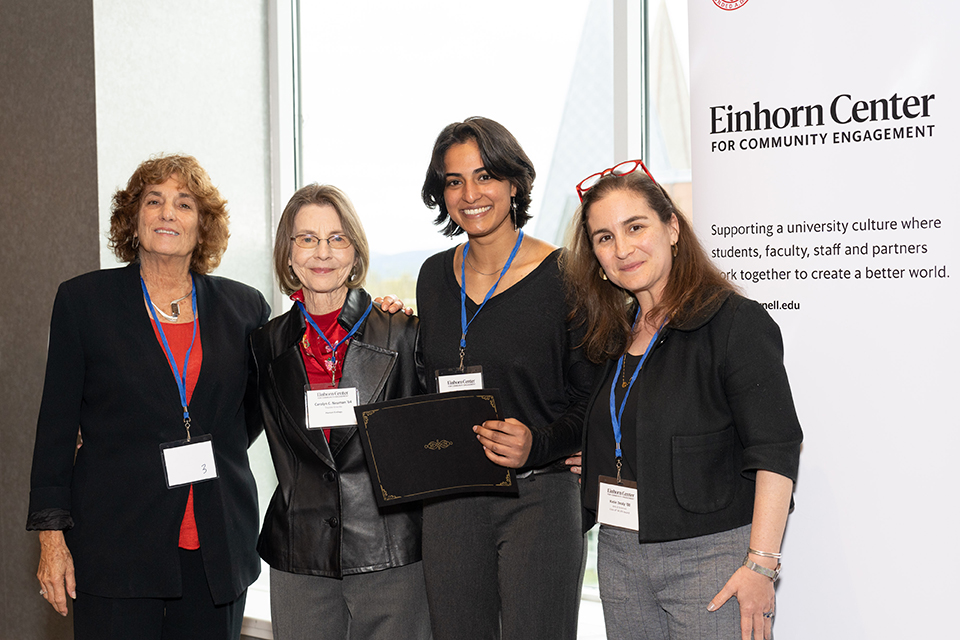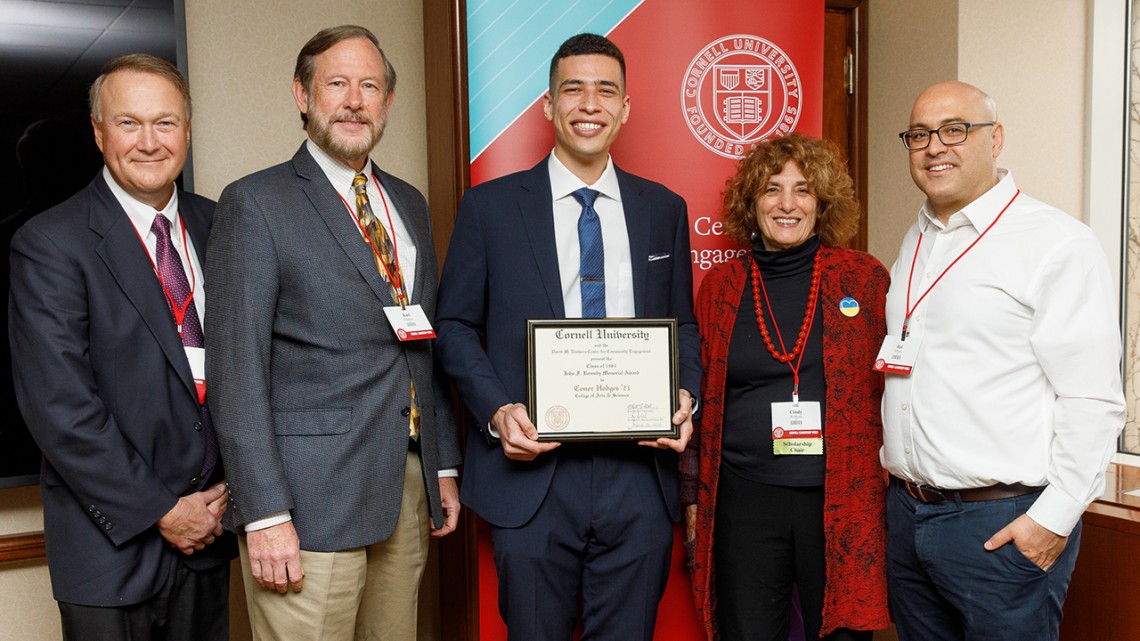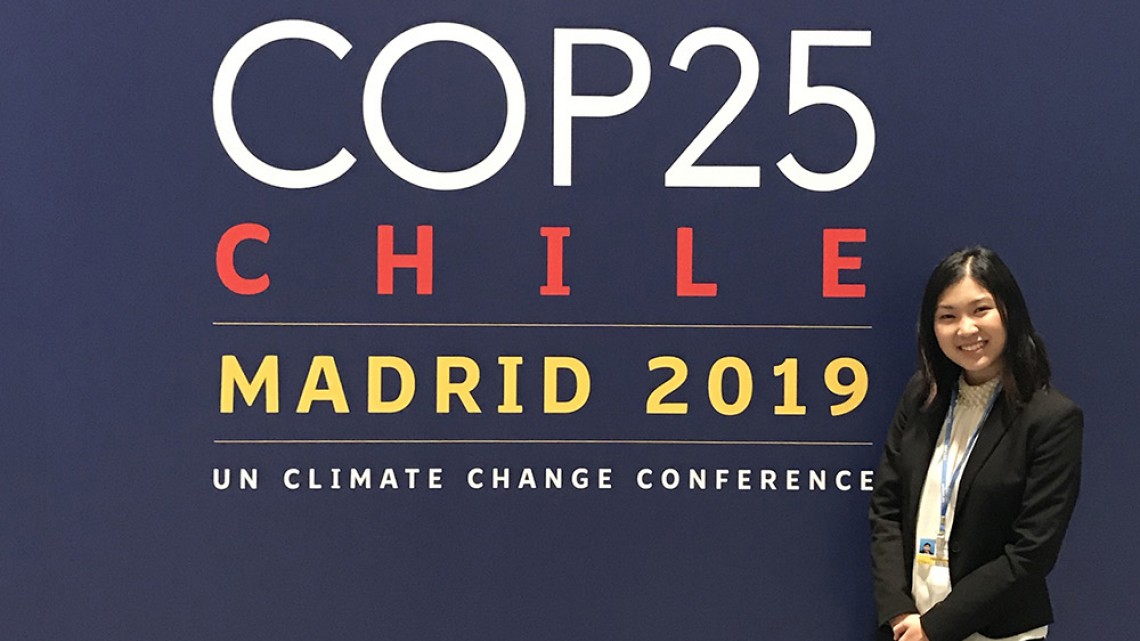
Natalia Urbas ’23, a materials science and engineering major in the College of Engineering, is this year’s recipient of the Class of 1964 John F. Kennedy Memorial Award.
She plans to use the $15,000 award funding to launch programs and infrastructure that support underrepresented minorities interested in pursuing careers in research and technology, specifically those interested in military and government positions. Established by the Cornell Class of 1964, the JFK award is administered by the David M. Einhorn Center for Community Engagement.
“Given the opportunities I’ve enjoyed, especially during my four years at Cornell, I feel both an opportunity and an obligation to help women of color, especially those first generation college students,” Urbas said. “There is an expectation about what “types” of people do well in engineering classes. When you don’t fulfill that, people expect less of you. For these young women, a lack of role models and the weight of others’ doubt can be crippling.”
Academic mentorship has been a key theme during Urbas’s time at Cornell. As vice president and treasurer of Lodge Co-op, she has supported first generation students and students of color in her house. As diversity and inclusion chair for the Cornell Materials Society, she launched a mentorship program for underrepresented minorities. As a teaching assistant in MSE 3010: Materials Chemistry, she guided students through the subject matter and bolstered their confidence when they ran into challenges.
“She goes above and beyond to support her peers, staying well after the end of her scheduled office hours to answer questions, holding review sessions before exams and proactively reaching out to students who are struggling,” said Nicole Benedek, assistant professor of materials science and engineering and Urbas’s advisor. “Natalia’s pedagogical philosophy is unusually well-developed for a person at her career stage.”
This long list of involvements doesn’t even include her main activity outside academics: the Navy Reserve Officers’ Training Corps (ROTC). Through ROTC, she has been a squad leader and the joint services representative, responsible for coordinating with Cornell’s Air Force and Army ROTC units.
“ROTC taught me to work with people who have different goals, approaches to problem solving and willingness to compromise,” Urbas said. “Undoubtedly, these are skills I will need in advocacy and public service throughout my life.”
This coming year Urbas will commission as an officer in the U.S. Navy, and will be working as a nuclear reactor engineer at the Navy’s nuclear propulsion headquarters in Washington, D.C. Selection for this position was highly competitive, with Urbas being one of only six graduating ROTC students nationwide getting the assignment.
While stationed in D.C., Urbas plans to reach girls in underserved communities and pair them with mentors, provide introductions and host events that can make the young women’s dreams feel realistic and achievable.
“My goal is to empower women of color to see themselves in science, government and public service,” she said.
The Class of 1964 established the JFK award their senior year to further President Kennedy’s interest in realizing the leadership potential of America’s youth. Recipients include students from every Cornell school and college, many of whom have gone on to dedicate their lives to public service.




